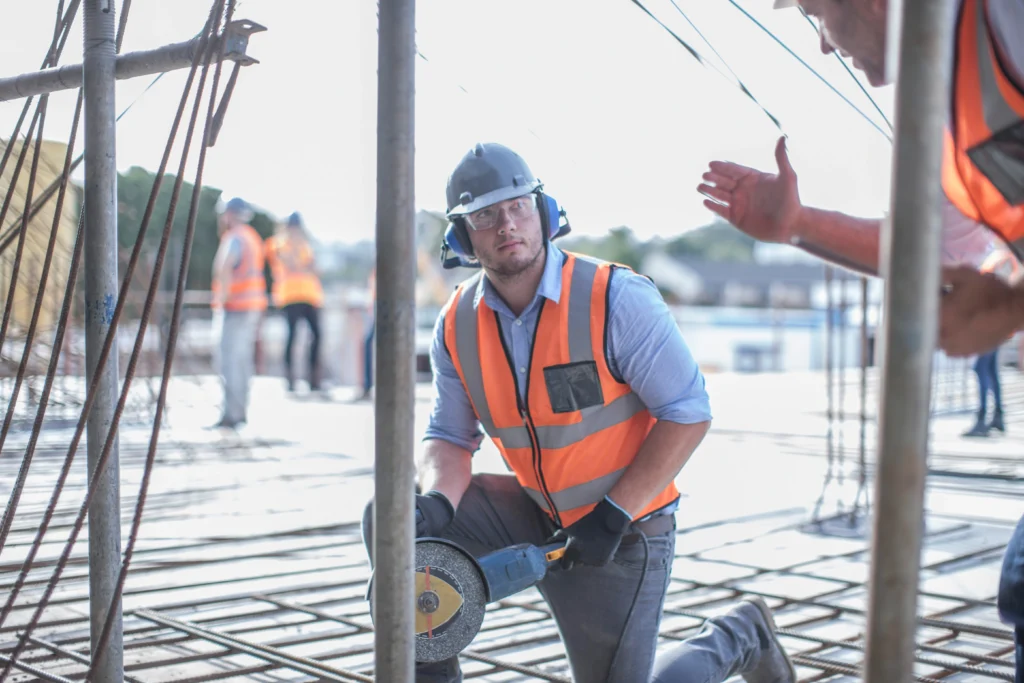In an increasingly competitive construction landscape, efficiency, precision, and timely delivery are crucial for success. Construction companies need to juggle multiple tasks, such as project management, budgeting, hiring, compliance, and client relations—all while ensuring projects stay on time and within budget. Many businesses now turn to virtual construction assistants (VCAs) to offload time-consuming tasks and improve productivity. These remote professionals bring specialized skills in construction administration, project coordination, bookkeeping, and customer service, making them a valuable addition to any team.

In this blog, we’ll explore the key benefits of hiring Virtual Construction Assistants, how they integrate into construction businesses, and the long-term impact they can have on operational success.
What Are Virtual Construction Assistants?
Virtual Construction Assistants (VCAs) are remote professionals trained to support construction companies in administrative, financial, and operational tasks. Unlike traditional office staff, VCAs work remotely, which reduces overhead expenses and increases flexibility. They may specialize in specific areas such as project documentation, data entry, financial management, or client follow-ups—tasks that are critical but often take valuable time away from core business functions.
Some common responsibilities handled by VCAs include:
- Project coordination: Tracking schedules, progress updates, and material orders.
- Bookkeeping: Managing invoices, purchase orders, and payroll.
- Client communication: Answering inquiries, following up on leads, and scheduling meetings.
- Bid preparation and documentation: Preparing RFPs (Requests for Proposals) and managing contracts.
By leveraging VCAs, companies can ensure every detail is taken care of while focusing their in-house resources on project execution.

How Virtual Construction Assistants Improve Operational Efficiency
Reducing Administrative Burden
Many construction business owners and managers spend hours handling administrative work, such as updating spreadsheets, submitting invoices, and responding to client inquiries. With a VCA, daily operational tasks can be delegated, freeing up time to focus on higher-value activities, such as managing on-site operations or closing new deals.
By using tools like project management software, VCAs also streamline processes. For example, they can automate tasks such as tracking material deliveries, scheduling subcontractors, or sending follow-up reminders—saving both time and effort.
Cost-Effective Workforce Solution
Hiring full-time, in-office staff comes with additional costs such as salaries, benefits, office space, and equipment. In contrast, VCAs offer a more affordable option because they work remotely and typically on a part-time or project basis. This makes it easier for construction businesses—especially small- to mid-sized companies—to manage their workforce expenses efficiently.
Additionally, VCAs allow businesses to scale their operations without the burden of long-term commitments. For instance, companies can hire a VCA temporarily to handle a surge in projects or seasonal work.
Enhanced Project Management Support
Construction projects involve multiple moving parts, from material orders to subcontractor coordination. A VCA can act as an extension of your project management team by keeping timelines on track and ensuring that every stakeholder has the information they need to move forward.
VCAs provide valuable support in the following ways:
- Schedule Management: Updating project calendars, booking contractors, and notifying team members about changes.
- Progress Monitoring: Ensuring that project milestones are met and flagging potential delays early.
- Document Control: Managing blueprints, permits, and contracts in cloud-based systems for easy access.
By staying on top of project details, VCAs help construction businesses meet deadlines and avoid costly delays.
Improved Financial Oversight Through Bookkeeping Support
Accurate financial management is crucial to the success of construction projects. A single delayed invoice or payroll error can disrupt operations and affect cash flow. Virtual Construction Assistants with expertise in construction bookkeeping provide essential support by managing accounts, tracking expenses, and generating financial reports.
Some of the ways VCAs can enhance your financial management include:
- Invoicing and Accounts Receivable: Issuing invoices on time and following up with clients to ensure payments are made.
- Accounts Payable: Tracking vendor bills and ensuring timely payments to avoid penalties.
- Payroll Management: Processing payroll efficiently to ensure employees and subcontractors are paid correctly and on time.
- Financial Reporting: Preparing profit and loss statements to help business owners monitor project profitability.
With proper financial oversight, construction companies can reduce errors and optimize cash flow, ensuring sustainable growth.

Strengthening Client Relationships with Superior Customer Service
Client communication plays a critical role in business growth. However, construction professionals often find it difficult to stay on top of emails, phone calls, and meeting schedules while managing site operations. A VCA can serve as the first point of contact for clients, responding to inquiries, handling follow-ups, and scheduling appointments.
Some VCAs even specialize in customer relationship management (CRM), helping businesses nurture relationships with existing clients and attract new ones. Through regular touchpoints, VCAs ensure clients feel valued and informed, improving satisfaction and increasing the chances of repeat business.
Access to Specialized Skills and Expertise
One of the most significant advantages of hiring Virtual Construction Assistants is access to specialized skills that may not be readily available in-house. For instance, some VCAs are experts in construction technology and can assist with software implementation, such as project management tools or accounting systems tailored for the industry.
Additionally, VCAs often have experience working with multiple construction companies, giving them unique insights into best practices that they can apply to your operations. Whether it’s creating efficient documentation workflows or optimizing your bidding process, their expertise can improve your business operations.
How to Integrate Virtual Construction Assistants into Your Team
Virtual Construction Assistants can play a crucial role in simplifying construction work, including tasks like selecting the perfect tiles for your project. By leveraging their expertise, VCAs can help you compare options, coordinate with suppliers, and ensure materials align with your design and budget. VCAs can assist with a variety of construction-related tasks.
The success of working with a Virtual Construction Assistant depends on how effectively they are integrated into your operations. Here are a few steps to ensure a smooth transition:
- Define roles and expectations: Clearly outline the tasks and responsibilities assigned to your VCA.
- Use collaboration tools: Leverage software such as Slack, Trello, or Asana to stay connected and track progress.
- Establish regular communication: Set up recurring meetings to align priorities and address any challenges.
- Provide access to necessary resources: Ensure the VCA has access to the tools, documents, and software required to perform their tasks effectively.
By fostering collaboration and open communication, construction companies can seamlessly incorporate VCAs into their daily workflows.

Elevate Your Business with Virtual Construction Assistants
In today’s fast-paced construction industry, businesses need to find innovative ways to stay competitive. Virtual Construction Assistants offer a cost-effective and flexible solution to manage administrative tasks, enhance project management, improve financial oversight, and strengthen client relationships. They allow business owners to focus on what they do best—delivering high-quality projects on time and within budget.
Whether you’re looking to streamline operations, reduce overhead, or scale your business, integrating a VCA into your team could be the game-changer you need.
Ready to experience the benefits of a Virtual Construction Assistant? Contact us today to discuss how we can help your business grow.
